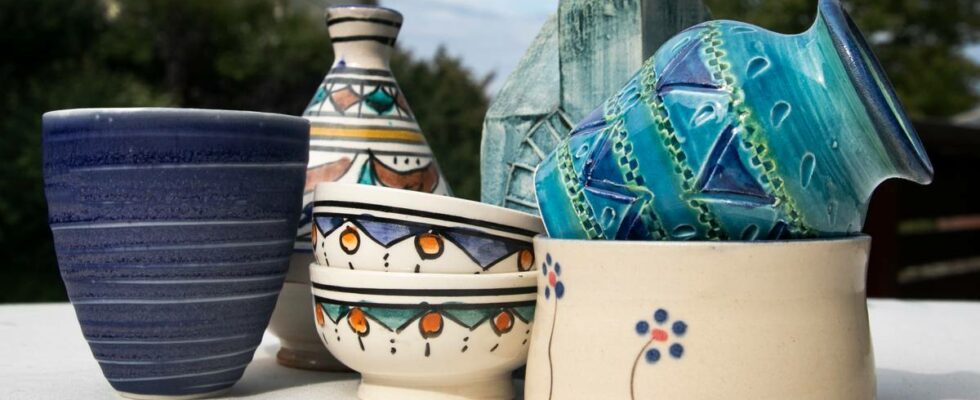Many Norwegians come home from holiday these days. Perhaps they have bought ceramics as a holiday souvenir? It can be difficult to know what the ceramics contain. – Certain types of ceramics can release harmful amounts of heavy metals when used in contact with acidic foodstuffs, says Olav Vatn of the Norwegian Food Safety Authority. Especially ceramics from the area around the Mediterranean can contain heavy metals such as lead, he says. The Norwegian Food Safety Authority recommends making sure that the ceramics you buy are suitable for contact with food and drink. Photo: Linda Bjørgan / news Can cause health damage – Lead is considered toxic because relatively small amounts can cause health damage, says Vatn. In the Mediterranean area, the objects are often glazed to give the ceramics stronger colours. According to Vatn in the Norwegian Food Safety Authority, ceramic glazes often contain lead oxide. If the glaze is not treated correctly, harmful amounts of heavy metals can leak into acidic food and drinks. – With the correct use of glaze mixture and firing at the correct temperature, the ceramic objects should not give off illegal amounts of lead, says Vatn. – Children are the most sensitive – I think you should generally pay attention to whether the ceramics you buy are meant for food and drink, says senior researcher at the Institute of Public Health, Helle Katrine Knutsen. She says that children and pregnant women are the ones who tolerate heavy metals the least. – Parents with young children and pregnant women should be particularly careful with what materials they use for storing and serving food, she says and continues: – It is primarily the development of the nervous system in children, damage to the kidneys and higher blood pressure that are the most harmful the effects. If the glaze on the ceramics is not fired at the correct temperature, heavy metals such as lead can leak into food. Photo: Linda Bjørgan / news Urges to investigate – We recommend that the consumer ask whether the product is intended for contact with food and drink, says Olav Vatn in the Norwegian Food Safety Authority. He also encourages you to ask the seller if he can guarantee that the product does not release lead, cadmium or barium above the limit values. For those who have already bought ceramics, however, it can be difficult to know whether he is safe, says Vatn. – Ceramics of unknown quality can be sent for chemical analysis at a private laboratory. Knutsen believes that one can be relatively safe in Europe, as long as the ceramics are produced for contact with food. – If you make sure that the product is prepared for use with food, there are clear EU regulations that regulate how little lead can leak out. She urges people to be even more careful on holiday outside Europe. – Legislation outside the EU is not necessarily as good as in the EU, so in more distant regions one should be particularly careful. Published 11.08.2024, at 22.05
ttn-69
The Norwegian Food Safety Authority warns against ceramics with health-hazardous heavy metals from the Mediterranean area – news Trøndelag – Local news, TV and radio

